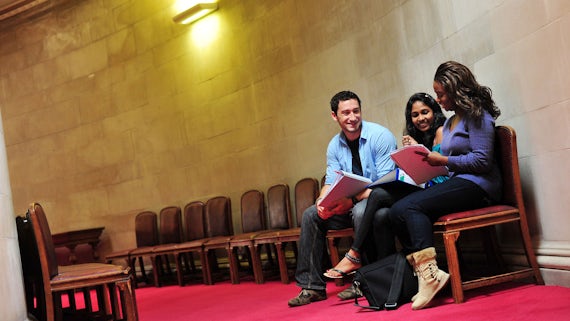More needs to be done to address the gender gap in academia, researchers say
6 June 2019

Being a woman has a negative association with academic rank, a study led by Cardiff University researchers has shown.
A total of 2,270 academics from the 24 Russell Group universities, across all fields of knowledge, were surveyed for the research. They were asked a wide range of questions about their academic credentials, research productivity, working conditions and duties, socio-demographic characteristics and family circumstances - such as number of children and responsibility for their care.
The analysis found that a man working in the same field as a woman, with similar or even identical credentials and family circumstances, is more likely to have a higher academic rank.
Dr Georgina Santos, based in the School of Geography and Planning, said: “The message from our research is clear: Women are less likely to hold senior academic posts even when they have comparable experience to their male counterparts. Although very rarely is there any blatant open discrimination in academia, there may be forms of sometimes unconscious discrimination that are concealed, almost unnoticeable, and therefore harder to identify.”
The percentage of time spent on teaching activities can also have a negative impact on career progression, the study shows. This association is more detrimental to women, who spend a higher amount of their working time teaching. It is also true of those on lower academic ranks. Researchers conclude that since more women tend to be in lower positions, the percentage of time spent on teaching activities may be considered as both a cause and a result of the gender gap.
The only group for which the research found no gender gap is the group of male and female academics who had children once they had secured a certain position.
Findings from the survey also revealed that more than half (53%) of the female academics in the sample aged 45 and over did not have children, compared to 20% of all women aged 45 and over in England and Wales.
Dr Santos said: “Once they reach their thirties, women have two competing goals in their lives: establishing themselves in their careers, having finished their PhDs, and having children. Delaying pregnancy can mean that these women are left childless as fertility declines with age. Academia is not perceived as a family-friendly working environment, and is probably not.”
Researchers recognised that universities within the Russell Group had a number of policies in place to support work-life balance and family life, including flexible working arrangements and part-time opportunities, generous maternity leave packages, and subsidised or (capped) tax-free childcare, sometimes within campus.
She added: “Most universities offer career guidance through appraisal schemes for men and women, and in some cases, through workshops designed by and for women specifically. But despite all these policies and benefits, our results show that more needs to be done to ensure women are not left having to make the difficult choice between starting a family or advancing their careers.”
Gender and Academic Rank in the UK, is published in sustainability and can be viewed here.
Share this story
The School applies critical thinking and practical knowledge in solving economic, environmental and social problems to address the grand challenges faced by human societies and places today.

